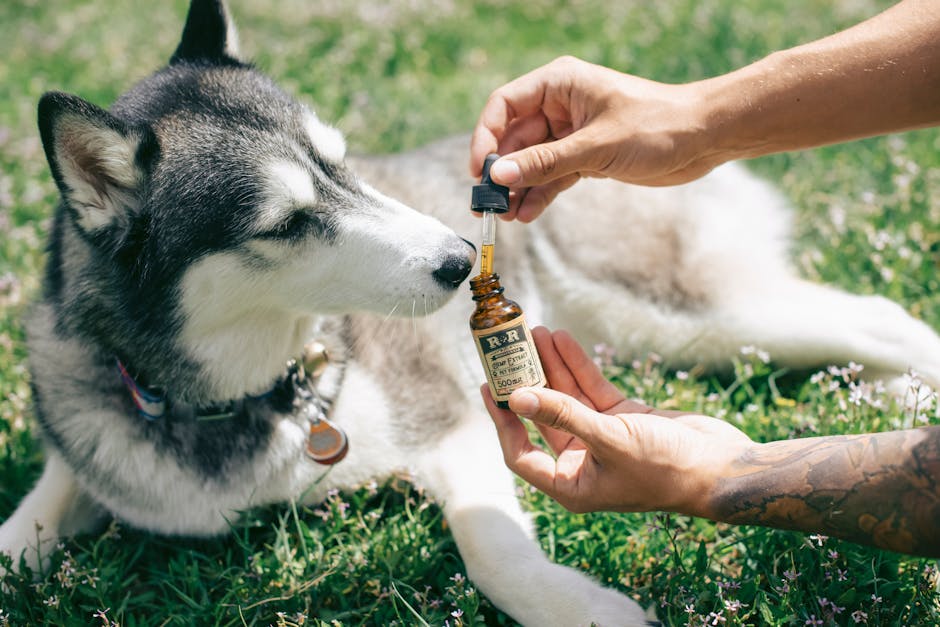Pet owners often seek alternative approaches to conventional veterinary care, driven by a desire for gentle, holistic solutions for their furry companions. Natural remedies, drawing on botanical extracts, nutritional supplements, and homeopathic principles, have gained some traction in this realm. However, a nuanced understanding is crucial, as these methods are not a replacement for professional veterinary guidance.
A Growing Interest in Holistic Approaches
The interest in natural pet remedies stems from several factors. Many pet owners are drawn to the concept of avoiding synthetic pharmaceuticals, particularly regarding potential side effects. They also see natural remedies as a way to address underlying imbalances in their pet’s health, rather than just treating symptoms. Further, a sense of empowerment arises from taking a proactive role in managing their pet’s wellbeing.
However, this growing interest necessitates a critical evaluation of the scientific evidence backing these treatments.
Distinguishing Between Natural and Safe
Crucially, not all natural remedies are equally effective or safe. Some substances, seemingly harmless in human consumption, can be toxic to pets. For example, common household items like grapes and raisins, onions, and chocolate pose serious risks to dogs and cats. Likewise, certain herbs, while safe for humans, can be harmful to pets in varying degrees. A potent example lies in the potential for liver toxicity from certain plant-based remedies.
A key consideration involves proper dosage. Human-grade supplements may not be formulated for pets and inappropriate amounts can be detrimental. For instance, an amount considered healthful for a human could cause adverse reactions in a smaller animal. Always adhere to specific instructions provided by a qualified veterinarian or a reputable pet health professional.
Important Considerations for Natural Remedies
Before embarking on a natural remedy path, pet owners must engage in crucial conversations with their veterinarian. The decision to incorporate natural remedies must align with a supportive, holistic approach rather than a replacement for proven veterinary care. Many pets benefit from a combination of natural therapies and conventional medicine. For instance, a dog with arthritis might benefit from dietary changes (enriched with glucosamine) alongside prescribed medication.
Crucial questions to consider before adopting natural remedies include:
* What is the underlying health concern? A proper diagnosis is paramount, and a natural remedy should only be explored after a professional veterinary evaluation. Natural remedies can be useful adjuncts to, but not substitutes for, conventional treatments.
* What is the source of the remedy? Reputable sources and certifications are vital to ensure quality and safety.
* What is the appropriate dosage? Precise dosing is critical, as even seemingly benign substances can be harmful if administered incorrectly.
* What are potential side effects? Even natural remedies can cause adverse reactions in susceptible animals.
* What is the potential interaction with existing medications? Many natural remedies can interact with medications, potentially negating their effectiveness or causing harm.
Examples of Potential Natural Remedies and Their Limitations
Specific botanicals, like chamomile and ginger, might show promise in treating mild conditions like mild anxiety or digestive upset. However, their effectiveness remains relatively unproven for serious illnesses. Likewise, nutritional supplements, such as glucosamine or fish oil, can play beneficial roles in supporting joint health or reducing inflammation, but their efficacy is often best assessed in conjunction with a vet’s guidance.
Crucial Roles of Veterinary Expertise
Veterinary professionals are best equipped to assess a pet’s overall health and diagnose underlying conditions. They can evaluate the potential benefits and risks of natural remedies in combination with established treatments. Consultations are vital for tailoring any natural therapy to the individual pet’s needs.
Furthermore, veterinarians are crucial in detecting any potential interactions between natural remedies and existing medications. This preventative measure is essential to avoid unwanted consequences.
A Harmonious Approach
Ultimately, a harmonious approach involves combining the best of both worldsintegrating natural remedies with scientifically proven veterinary care. Pet owners who desire natural therapies should work collaboratively with their vets, understanding that natural remedies can be valuable adjuncts, but they cannot replace the critical role of professional medical advice.
Ethical Considerations and Responsible Use
Ethical sourcing is paramount. Pet owners should prioritize sustainable and ethical sourcing for natural remedies, ensuring their use aligns with responsible environmental and animal welfare standards.
In conclusion, while natural remedies may offer potential benefits for certain pets, they must be approached cautiously and responsibly. Their use must be guided by veterinary expertise to avoid potential harms, including interactions with existing medications. Thorough research, proper consultation, and a clear understanding of the limits of these treatments are essential to ensuring the well-being of our animal companions. A holistic approach that integrates natural remedies with conventional veterinary care can yield the best results, supporting the health and happiness of our pets.
